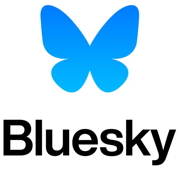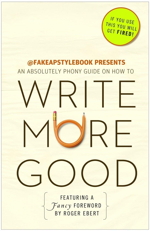“Let me expound on that for a moment” — the worst words you can ever hear from me.
So once again your pal Mike has an early morning meeting awaiting him, so I’m going to most just respond to Daniel’s comment from way-back-when today, as it is a very good commentary on continual rebootery vs. consistency’s hobgoblins.
Daniel thus spake
“Not sure if I’m in the minority or not, but I loved Crisis and (more importantly) the post-Crisis rebooted universe. I generally really liked a lot of the early New 52 reboot (until it became clear about six to eight months in that there really wasn’t much of a central plan to the reboot and that they hadn’t really learned anything from the mistakes of the post-Crisis universe). I like new beginnings. I like when things start over from ground zero.”
I honestly don’t think you’re in the minority at all in loving Crisis and the shenanigans that followed. I know there’s been a lot of knocking of Crisis in these here parts over the last week or so, but I started off saying that I unabashedly love the series, even as I’m aware of the storytelling shortcomings and the very much “ya hadda be there” requirement for the proper impact. I do love the series, I treasure that fancy slipcase edition from when it was first collected. Unlike most “important” event series, it actually Was Important, restructuring not only a publisher’s entire storytelling strategy but still influencing the industry in various ways several decades later.
And the New 52 was exciting, and maybe even a little frightening in a way…”what the hell is DC thinking,” that sort of thing. As you note, the excitement gave way to…what’s the right word? Dismay? Chagrin? Confusion, maybe? The apparently rushed nature of this restructuring became evident, and as the cancellations and the relaunches-of-the-relaunches started to hit and the flopsweat starting pouring from DC’s publishing plans, what was an immense hit became an progressing series of special events and an increasing reliance on variant covers to shore up sales.
I always feel like I have to note “but there were still good comics coming out from them” and there were, but the desperation of the gimmicky marketing was obvious.
“I like hard reboots. I like Elseworlds. I like the Burton-verse and the Nolan-verse and the Snyder-verse. I like getting into stories from the very beginning. I like variations on retelling the beginnings of these characters and seeing those retellings play out differently each time.
“The lesson of Crisis and the post-Crisis reboot is that these characters have finite potential. To my mind, attempting to perpetuate an ongoing, unending mega-continuity is doomed to fail. You can only have Joker escape from Arkham so many times before it becomes banal and loses narrative credibility.”
Different interpretations of your favorite characters by a wide range of creators is part of the charm of superhero comics and their spinoff media. There’s an appeal to getting in on the ground floor of things and trying to follow along and keep up with this fictional milieu as it builds up around you (though disappoint threatens when the publisher seems less devoted to the concept than you are — see again the New 52). I often get kids who pull a #3 of something off the shelf and immediately ask for #1 and #2, which…yes, of course, that’s a natural impulse. But let me expound on that for a moment.
When I was a kid, back in Ye Olden Tymes when dragons roamed the land, I didn’t think anything about getting issue number, what, 170 of the Fantastic Four. I might not have even been aware there was an issue number. I just knew that this was a thing (er, so to speak) that had been going on for a while, and the comic was clearly in the middle of a story so I obviously missed stuff that had happened previously…but I read and enjoyed it anyway. I had no access to back issues. And even if I did, it wasn’t like I was going to go buy issues 1 through 169, that’s too many. At most I would have gone one or two back.
Nowadays, a number one of anything isn’t too far away from the current issue. Even as Batman enters the early 100s, that still feels attainable, even if one has to resort to the paperback collections. It’s a combination of the perceived availability combined with the fact that many modern comics aren’t standalone enjoyable experiences in a way that even the serialized issues of decades past were, that the need to be there “at the beginning” has increasing among comics readership.
Is that a good thing or a bad thing? Short term is probably good, as first issues tend to get higher orders by retailers, though as more and more number ones flash by I imagine those orders are becoming increasingly conservative. But I know as a kid I liked the idea that I was dipping into a title with a long history, that was around long before I was born and would (theoretically) be around after I was gone. When Marvel did their “Legacy” numbering, when they returned numbers of various titles to where they would be if no relaunches had happened (generally in the hundreds), my sales on those actually went up. Probably not a universal happening, given that Marvel relaunched everything with new #1s anyway, but there may have been some people out there who liked seeing them big ol’ numbers.
But to your following point, Daniel, the need for companies (well, mostly DC, Marvel, despite the constant relaunches, hasn’t really rebooted their universe as such) to tie everything together stems from the difference in which comic books are consumed. Back again in Ye Olden Tymes, to my youth and decades earlier, the turnover in comics readership appeared to be reasonably high. Little Billy read Superman until he became Teen Billy and discovered girls or cars or both, giving up his readership spot to Little Johnny, coming up right behind him. There’s a reason why there’s only about a five year gap between DC retiring the Jay Garrick Flash and reintroducing the slick, new, For The Space Age Barry Allen Flash: enough time had passed that a new audience may cotton to an old concept with a fresh coat of paint.
That’s not true of every reader, of course…there were plenty who kept reading for years and years. But the common wisdom was that the turnover existed, and the need to maintain a consistent history and continuity was minimal. They were just kinda throwing stuff out there to entertain the kids…so long as the stories and characters remained relatively consistent within themselves, that was good enough, and nobody worried that (to use a popular example) the Atlantis Aquaman was from appeared to be different from the one Lori Lemaris lived in.
But as the average readership started sticking around longer and longer, and that turnover slowly dropped away, there was more demand for consistency. Plus, as the readers who didn’t give up on comics became creators themselves, a la Roy Thomas, additional emphasis was placed on remembering the older comics and having them influence, or directly impact, the new. Marvel’s advent in the ’60s and their attempts at actual world-building and crosscontinuity among their titles, not to mention their direct courting of older teen and collegiate readers, helped this transition along as well.
This is what fuels the need for DC to kitbash a consistent history for their superhero shared universe…reader expectations have grown to want this consistency. With DC’s incessant focus on undoing, redoing, or relitigating Crisis on Infinite Earths, the fans are encouraged to not stop worrying about whether this story fits with that story. They are kept constantly aware that DC’s shared universe is by its very nature a shambles, and that there is a never-ending need to fix it. That’s what Death Metal was about. So was Zero Hour. And Doomsday Clock. Some of the most successful comics DC has ever published have been on the topic of why DC Comics needs to be fixed.
When you say
“…DC should focus not on trying to stitch everything together, but rather on giving creators the freedom to tell as many variations on the basic mythology of each character as possible.”
…I 100% agree, and in fact I think DC tends to do…okay with that. But every year or three another Big Event Comic comes along to apply more patches to the DC Universe and all it really manages to do is remind us that supposedly It’s All One Big Thing and they’re gonna make it so by hook or by crook. If DC would stop doing that, maybe readers would stop worrying so much if events in the new Harley Quinn mesh up perfectly well with what’s going on in Teen Titans Academy.
You’ve got more comment to cover, Daniel, but I’ve got bedtime so it’ll have to continue another day, hopefully one without a morning appointment waiting for me the next day. Thanks for the comment, David, and thanks for reading, everyone else. See you Friday.








When discussing the idea of folks falling into and out of the hobby, there’s also the unspoken role that reboots play is long-terms collectors stopping their collections, finding an endpoint to the ongoing story. As loath as I am to mention that on the blog of a retailer like Mike!
My older brother, who collected X-Men from the early Claremont days (and backtracked back issues and trades for the stuff that had come before, famously (to me) saw the arrival of Age of Apocalypse as his time to exit the story and close off his collection. Similarly, I had collected about forty long boxes of DC material (starting in the mid-90s but backtracking to Crisis) up until the announcement of the New 52. Seeing the costs and storage issues I had, I simply ended my collection with Flashpoint (aside from the picking up the remainder of Grant Morrison’s Batman and Sandman Overture), as the story which begins with Crisis ends there.
If every comic is someone’s first, then every comic is as easily someone’s last, and the potential to lose readers — either out of particular dissatisfaction or because you’ve removed the reasoning for them to read on past that – is something that has to be considered. As I see the details about the past decade of DC in different blogs, I see signs of lots of good books but no impetus for me to start collecting again. I grab the occasional trade from the library or bookstore shelf, but the Story is broken (from my perspective as a reader of my era) and there’s apparent way to really put Humpty-Dumpty together again.
Can’t speak for others, but for myself, one of the things that first attracted me about collecting comics as a kid in the 1980s was the long history with a consistent continuity that invited exploring. In my case it was Marvel, but I think there must be many DC fans with the same attraction.
I’ve heard Marvel likened to a really long novel, but that doesn’t seem quite right. I didn’t want to go back and read every single chapter. I wanted to go back and read areas of it I was interested in. Marvel was so all-encompassing! Not just super-heroes, but also Greek and Norse gods! Vampires and werewolves! Frankenstein! Somehow these all fit in.
It was less like a novel that you had read from start to finish and more like a giant amusement park. And just like you don’t go to Disney World and try to do everything (maybe some people do, but that’s exhausting and no fun)–you go in the gate and head whichever directions seem most interesting and fun. Mutantland! Thorville! World of Avengers! Spider-topia! and dozens more…
The constant reboots, Crises, New Universes, and Secret Warses only water this concept down. Now instead of a giant amusement park, with plenty of differently-themed areas but all part of one gigantic whole, you get a bunch of smaller parks that don’t seem related to each other, more like a neighborhood pool and a miniature golf course on opposite sides of town. Maybe still fun, but without that feeling of stretching on and on with new things to explore no matter how far you go.
Yes, I was also attracted to comics by the fact that there was a history to each series.
My first comic series which I collected was the X-Men, starting in 1982.
I loved the fact that there were over one hundred prior issues before that issue I bought to discover.
I wanted to be able to hunt down the issues that came before and find out what happened for those over-one hundred issues.
I think I gravitated towards Marvel more than DC because that seemed attainable.
There were only one hundred-some issues of X-Men to find.
A book like Batman seemed unattainable to me, because there were so many more issues to Batman and Detective Comics.
I mean, that wasn’t my original reason for buying that first X-Men comic. I just loved the cover when I saw it at the drug store.
When I decided that I would actually collect comics and buy the new issue every month, that was when the idea of the history plus the attainability of an entire series dawned on me.
Then, later, the idea of an entire inter-connected universe of stories drew me to want to read books outside of just the X-Men characters.
It wasn’t solely over one-hundred issues of the X-Men that filled in all the back-story. There were all these other series that took place during that same history.
The fact that my cousin collected Iron Man, and I used to read his IM comics also helped draw me to the wider Marvel Universe.
Having said that, now as someone who initially only read Marvel Comics, the idea that the DC Universe did start over post-Crisis made the idea of eventually buying some DC Comics seem more palatable to me.
So, I guess it can work either way for a fan.
>nobody worried that (to use a popular example) the Atlantis Aquaman was from appeared to be different from the one Lori Lemaris lived in.
Now that you mention it, that must have been a contributing factor to her Crisis death.
The hill which I will die mad upon is that issue of DC Comics Presents which retcons the Atomic Knights. Their first “evidence” that the Atomic Knights’ world not only didn’t exist but never existed is that the Hercules in Hercules Unbound had a different hair colour than the Hercules in Superman.
Fans ruin everything, thanks for coming to my TED talk.
The very first comic I remember reading was Wolverine #89 (The Mask of Ogun!). As a kid with no income at all, I was at the mercy of my aunt sending me comic books from the States, and so I grew up getting used to reading X-Man #23 without the benefit of knowing what happened in X-Man #1 to #22.
I liked that comics had a narrative that’s been going on for a while. It made me feel that I was reading something historic, and that I now am knowledgeable of the lore that I can hang with other comic book fans to discuss it.
Hence why I was never a big fan of reboots, if only because it’s often so mindless and spineless and even much often a short term cash grab that did favors for DC’s bottom line for a while. That is, until they feel readers are sloughing off faster than they can charge them 4.99 so they can pull the reboot trigger again.
“there were plenty who kept reading for years and years”
And years and years and years and years!
To this day, I love jumping into a new series that’s already in progress. That’s how I read the Five Year Later Legion of Super-heroes (started with #11). And that’s how I read the amazing first arc of Nowhere Men (started with #5). The more dense and confusing the better because then I get to reread the issues to put the pieces together.
My first comic ever was Uncanny X-Men #150, which was like getting thrown in the deep end. That was a lot of pieces to fit together, and I loved it.
I wouldn’t mind reboots so much if it seemed like they served a purpose. So often, like with the Nu52, the start is promising but the follow-through is lacking. It became pretty clear that the storytelling purpose lagged behind the marketing purpose. I find reboots, restarts, renumbers, refreshes, etc. a better jumping-off point than a jumping-on point.
[…] my hope at the end of the last post addressing Daniel’s comment about DC and the rebooting and the continuities, I do in fact […]